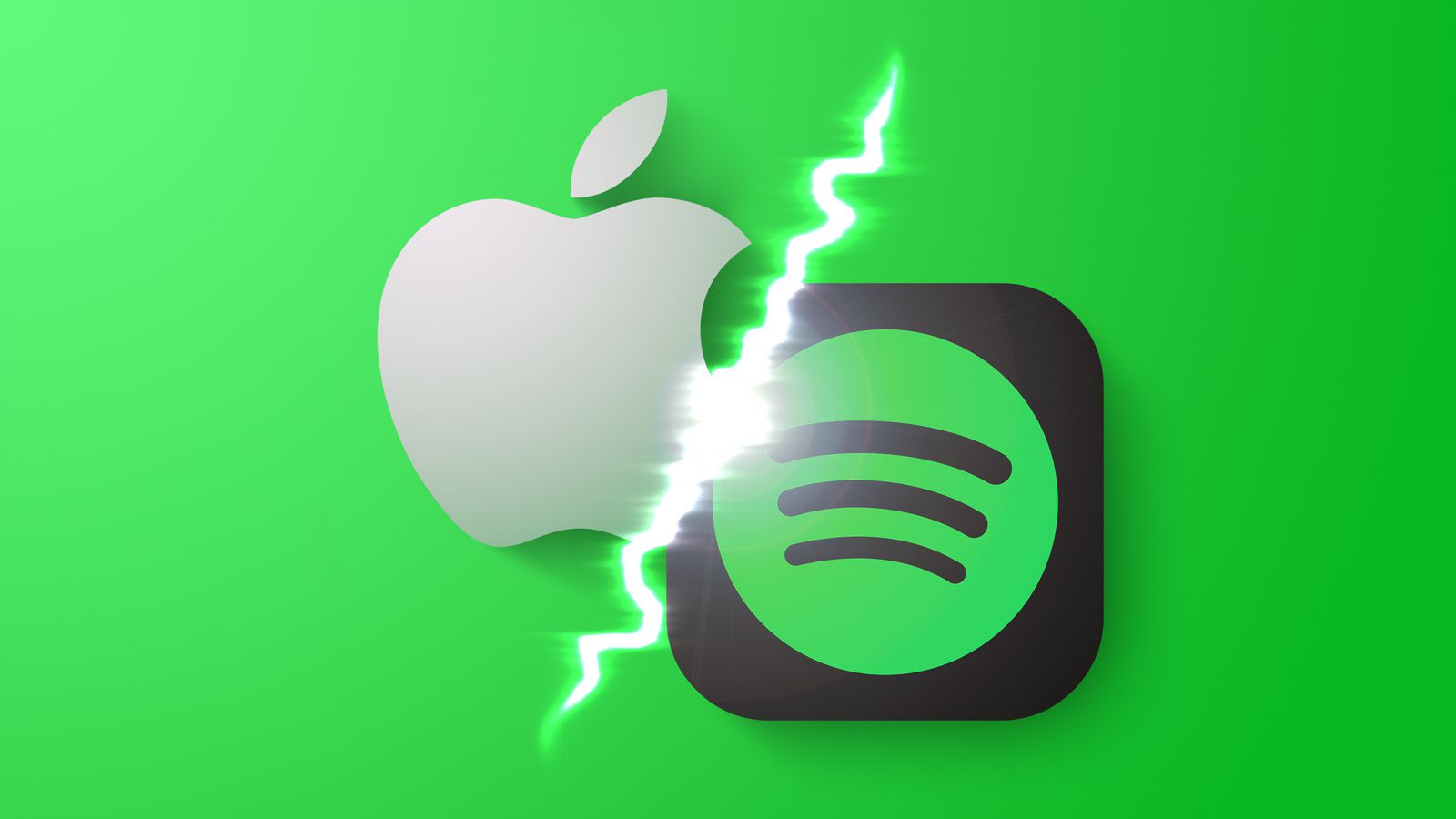The battle lines are drawn once more in the ongoing saga between Spotify and Apple. This time, the fight centers around app store fees and the ability of music streaming services to inform users about alternative pricing options within the EU. Let’s delve deeper into this complex situation, exploring its history, the current dispute, and the potential implications for both companies and consumers.
A History of Conflict: A Recurring Melody
This isn’t the first time Spotify and Apple have locked horns over app store regulations. In the past, Spotify has challenged Apple’s restrictions on including website links within their iOS app. These links could have directed users to Spotify’s website, potentially allowing them to subscribe outside of Apple’s ecosystem and bypass the 30% commission fee levied on in-app purchases. However, Apple consistently rejected such app updates.

The EU’s Ruling: A New Chapter
In 2021, the European Union (EU) intervened, taking a strong stance against Apple’s app store practices. The EU found Apple guilty of anti-competitive behavior and imposed a hefty fine of €1.84 billion. This landmark ruling stipulated that Apple must allow music streaming apps, like Spotify, to inform users about alternative subscription options outside of the App Store.
This decision marked a significant victory for music streaming services and potentially paved the way for a more open and competitive app store environment within the EU.
The Block: Apple’s Counterpoint
Despite the EU ruling, Apple continues to resist complete compliance. While they acknowledge the need to allow external links in music streaming apps, they have implemented new guidelines. These require apps to utilize Apple’s “Music Streaming Services Entitlement” program, even if they choose to include external links for subscription purchases. This program effectively ensures that Apple still collects a commission (reportedly around 27%) on any subscriptions initiated outside of the App Store.
Spotify’s Workaround: A Calculated Maneuver
Undeterred by Apple’s revised guidelines, Spotify devised a new strategy. Their latest app update for EU users reportedly avoids directly mentioning their website for subscriptions within the app. Instead, it guides users through a series of steps that encourage them to manually search for the Spotify website. This approach attempts to circumvent Apple’s commission structure by directing users outside of the App Store for subscription purchases.
Frustration on Both Sides: A Stalemate
This ongoing dispute has left both companies frustrated. Spotify feels Apple is blatantly disregarding both the spirit of the EU ruling and the interests of consumers. They argue that Apple’s actions stifle competition and inflate subscription costs for users. Apple, on the other hand, maintains they have complied with the EU ruling by allowing external links. They insist their “Music Streaming Services Entitlement” program is a necessary element for app security and functionality.
Limited Changes: The Digital Markets Act
The EU’s recently introduced Digital Markets Act (DMA) further complicates the situation. This legislation aims to create a more level playing field within the digital marketplace by requiring companies like Apple to allow alternative app stores and payment methods. However, Spotify contends that Apple’s current approach to complying with the DMA is insufficient.
Looking Forward: An Uncertain Future
The current situation presents a complex web of challenges. Both Spotify and Apple are locked in a high-stakes battle with significant implications.
For Spotify: Their ability to inform users about potentially cheaper subscription options directly within the app remains restricted. This could limit their ability to compete effectively within the EU market.
Apple: They face ongoing pressure from regulatory bodies and continued criticism from developers like Spotify. Additionally, Apple plans to appeal the hefty EU fine, and its app store practices could face further scrutiny in the future.
For EU Consumers: The current impasse could lead to higher subscription costs as long as Spotify is forced to operate under Apple’s commission structure.
The path forward hinges on several key factors:
EU Enforcement: The EU’s commitment to enforcing its ruling and the potential for further regulatory action against Apple will play a crucial role.
Apple’s Compliance: The extent to which Apple adapts its app store policies to truly comply with EU regulations will determine the degree of market openness.
The Outcome of Legal Challenges: The results of Spotify’s challenges and Apple’s appeal against the EU fine could significantly influence the future landscape.
FAQs
Q: Why is Spotify fighting with Apple over app store fees?
A: Spotify argues that Apple’s 30% commission fee on in-app purchases unfairly inflates subscription costs for users. They also believe Apple’s restrictions on informing users about alternative pricing options stifle competition within the EU market.
Q: What did the EU rule in favor of Spotify?
A: The EU ruled that Apple must allow music streaming apps, like Spotify, to include links to alternative subscription options outside of the App Store. This decision aimed to create a more open and competitive app store environment for EU users.
Q: How is Apple responding to the EU ruling?
A: While Apple allows external links in music streaming apps, they also require apps to utilize their “Music Streaming Services Entitlement” program. This program effectively ensures that Apple still collects a commission on subscriptions initiated outside of the App Store.
Q: Who will benefit from this ongoing dispute?
A: The current situation primarily benefits Apple, which can still collect fees on subscriptions made outside their app store. Consumers and developers might face higher costs and limited choices until a definitive resolution is reached.




